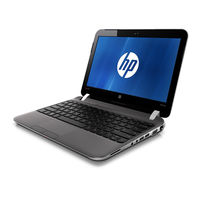User Manuals: HP Pavilion g4-1300 Notebook
Manuals and User Guides for HP Pavilion g4-1300 Notebook. We have 4 HP Pavilion g4-1300 Notebook manuals available for free PDF download: User Manual, Reference Manual, Getting Started, Technical White Paper
Advertisement
Advertisement
HP Pavilion g4-1300 Technical White Paper (8 pages)
Notebook Hard Drives & Solid State Drives
Brand: HP
|
Category: Laptop Accessories
|
Size: 0.22 MB
Table of Contents
Advertisement



